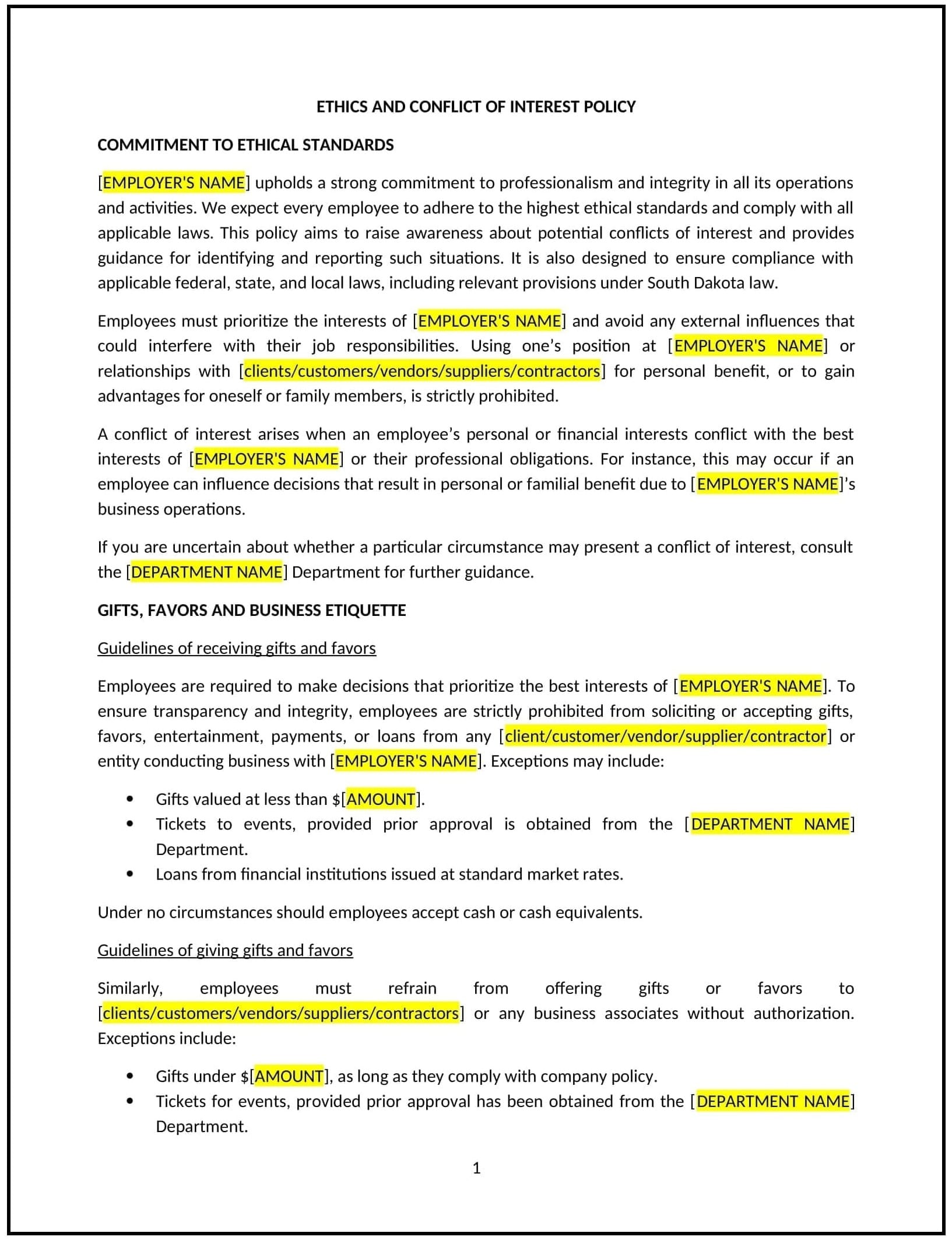Ethics and conflict of interest policy (South Dakota): Free template
Got contracts to review? While you're here for policies, let Cobrief make contract review effortless—start your free review now.

Customize this template for free
Ethics and conflict of interest policy (South Dakota)
This ethics and conflict of interest policy is designed to help South Dakota businesses promote integrity, transparency, and accountability in workplace operations. It establishes standards for ethical behavior, identifies potential conflicts of interest, and provides procedures for addressing and resolving such conflicts in compliance with South Dakota laws.
By adopting this policy, businesses can foster trust, uphold ethical practices, and mitigate risks associated with ethical breaches or conflicts of interest.
How to use this ethics and conflict of interest policy (South Dakota)
- Define ethical standards: Outline expectations for professional conduct, including compliance with laws, honesty, fairness, and respect for company values.
- Identify conflicts of interest: Specify common scenarios, such as financial investments in competitors, close personal relationships affecting decision-making, or receiving gifts from vendors.
- Include disclosure requirements: Provide clear steps for employees to disclose potential or actual conflicts of interest, including documentation and submission processes.
- Detail resolution procedures: Outline how disclosed conflicts will be assessed and resolved, such as reassignment of duties or other safeguards.
- Address accountability: Specify consequences for ethical violations or failing to disclose conflicts, including disciplinary actions.
- Provide training: Offer regular training on ethical decision-making and recognizing potential conflicts of interest.
- Monitor and review compliance: Conduct periodic reviews to ensure adherence to the policy and evaluate its effectiveness.
Benefits of using this ethics and conflict of interest policy (South Dakota)
This policy provides several benefits for South Dakota businesses:
- Promotes ethical behavior: Establishes clear expectations for employees and leadership.
- Reduces risks: Helps mitigate potential legal, financial, and reputational damage from unethical practices or conflicts.
- Builds trust: Demonstrates the company’s commitment to integrity and transparency.
- Supports compliance: Aligns with South Dakota laws and industry-specific regulations.
- Encourages accountability: Creates a framework for addressing and resolving ethical concerns fairly and consistently.
Tips for using this ethics and conflict of interest policy (South Dakota)
- Communicate the policy: Ensure employees receive and understand the policy during onboarding and through regular communications.
- Foster transparency: Encourage employees to disclose conflicts early without fear of retaliation or judgment.
- Use practical examples: Provide scenarios that illustrate common ethical dilemmas and how they should be handled.
- Maintain records: Keep accurate documentation of disclosures and resolutions to support transparency and compliance efforts.
- Update regularly: Revise the policy as needed to reflect changes in South Dakota laws, industry regulations, or organizational needs.